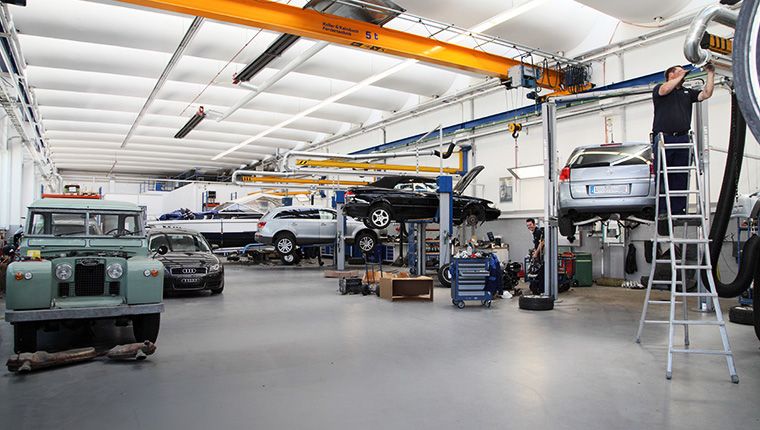Quick diagnosis for drivers

Diagnostics
We show you possible causes for your engine problem. Use our diagnostic matrix for this purpose.
If you find indications of possible turbocharger damage, then you should consult one of our TurboExperts as soon as possible. Our TurboExperts have become specialists in solving these faults thanks to our in-depth turbocharger expertise.
Blue smoke
Possible causes:
- Clogged air filter or dirty compressor
- Oil return lines clogged or deformed
- Malfunction of crankcase ventilation system
- Exhaust system has too high flow resistance / exhaust gas purification systems clogged
- Turbocharger bearing damaged
Black smoke
Possible causes:
- Leakage or deformation in the boost pressure line
- Fouling of the air filter or sooting of the charge air cooler
- Exhaust gas buildup due to fault in the exhaust gas purification system
- Turbocharger bearing damage
- Foreign body damage to compressor or turbine
Lack of power
Possible causes:
- Leakage or deformation in the boost pressure line
- Fouling of the air filter or sooting of the charge air cooler
- Defective charger pressure control valve/fault in the vacuum supply system
- Exhaust gas buildup due to fault in exhaust gas purification system
- Insufficient oil supply to turbocharger
- Turbocharger bearing damage
- Foreign body damage to compressor or turbine
- Overheating of the turbocharger
Notlaufprogramm
Engine control lamp lights up or fault message appears in the display, no power: To prevent consequential damage to the engine and/or turbocharger, the engine control unit switches to an emergency program.Possible causes:
- Boost pressure control deviations due to mech. damage on boost pressure section
- Boost pressure control deviations due to mech. or electrical faults in the boost pressure control system
- Faults or defects in the vacuum system
- Boost pressure control deviations due to mech. damage to turbocharger
High oil consumption
Possible causes:
- Clogged air filter or dirty compressor
- Oil return lines clogged or deformed
- Malfunction of crankcase ventilation system
- Excessive exhaust backpressure due to fault in exhaust gas purification system
- Turbocharger bearing damage
Turbocharger generates noise
Possible causes:
- Exhaust gas leakage between exhaust manifold and turbocharger or cylinder head / cracks in exhaust manifold
- Exhaust gas leakage after turbine outlet in exhaust system
- Leakage in the charge pressure line and charge air cooler
- Turbocharger bearing damage, excessive bearing clearances
- Foreign body damage to compressor or turbine
- Heat cracks in turbine housing
- Leaks in EGR system
Exhaust odor in passenger compartment
Possible causes:
- Exhaust gas leakage between exhaust manifold and turbocharger or cylinder head / cracks in exhaust manifold
- Exhaust gas leakage after turbine outlet in exhaust system
- Exhaust gas buildup due to defect in exhaust gas purification system, gas leakage at mech. component
- Leaking components on EGR tract
Oil leakage at turbocharger
Possible causes:
- Oil return lines clogged or deformed
- Malfunction of crankcase ventilation system
- Exhaust gas buildup due to fault in exhaust gas purification system
- Turbocharger bearing damage
Bearing damage on turbocharger
Possible causes:
- Poor lubrication due to insufficient oil quality, excessive oil change interval
- Poor lubrication due to fuel/coolant entering the engine oil
- Excessive exhaust backpressure due to faults in the exhaust gas purification system
- Oil carbon deposits in the engine oil circuit
- Oil carbon deposits in the oil feed line of the turbocharger
- Overheating of the turbocharger due to malfunction of the auxiliary cooling system
- Overheating of the turbocharger due to hot shutdown
Our partner workshops will help you!
Find a TurboExpert workshop near you today, because even if your engine's lack of power is not related to turbo damage, we can help you easily, quickly and affordably.
Find a TurboExpert near you!



 German
German
 English
English